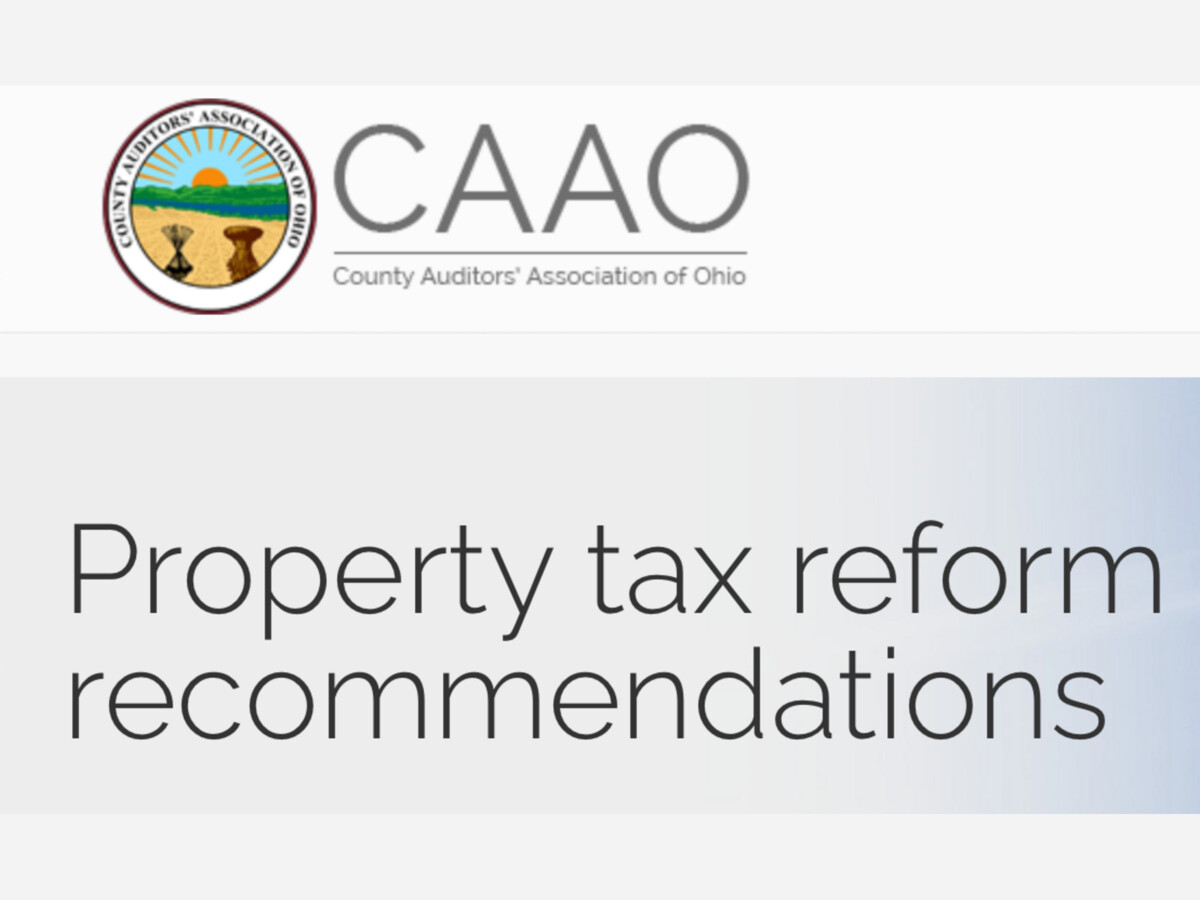Image


WARREN COUNTY, OH -- On April 9, three southwest Ohio County Auditors - Hamilton County Auditor Jessica Miranda, Montgomery County Auditor Karl Keith, and Warren County Auditor Matt Nolan – held a briefing on April 9th to encourage advocacy for four legislative initiatives created by the County Auditors’ Association of Ohio (CAAO).
Property taxes have skyrocketed for homeowners in Ohio, particularly since 2023. Although County Auditors are responsible for just the property valuation factor in property tax liability calculations, representatives from the 88 County Auditor offices in the state are working together to advocate for tax relieve.
Press representatives, local elected officials, and other community leaders in attendance were presented the following four advocacy points aimed at providing targeted property tax relief.
1. Expand the Homestead Program: (Presented by Suzanne Burke, CEO of Council on Aging and Auditor Jessica Miranda) Current law exempts taxes on the first $26,200 of property valuation for individuals 65 or older or permanently disabled who have an Ohio Adjusted Gross Income of $36,100 or less. The CAAO proposes increasing both the valuation that would be exempt from property taxes and the income threshold so that more individuals can qualify for the program. This will allow some of our most vulnerable Ohioans to stay in their homes.
2. Eliminate the Non-Business Credit and Expand the Owner Occupancy Credit: (Presented by Larry Williams, Cincinnatus and Auditor Matt Nolan) The State of Ohio pays a portion of qualifying property tax levies on behalf of residential and agricultural property owners, providing a 10% credit. The Non-Business Credit provides a 10% credit to all property owners with residential or agricultural properties, and the Owner Occupancy Credit provides a 2.5% credit to properties that are both owned and occupied as the individual’s primary residence. The CAAO would propose eliminating the Non-Business Credit as it often benefits for-profit owners, while expanding the Owner Occupancy Credit to a meaningful credit that would provide real tax relief to those homes that are owner-occupied.
3. Limit the Growth in Revenue Received by School Districts Due to Reappraisal Changes: (Presented by Jenni Logan, Treasurer/CFO of Sycamore Community Schools and Auditor Jessica Miranda) Under Ohio law, school levies are subject to a floor that will not allow the tax rate to be adjusted downward when reappraisal increases occur. The CAAO proposes eliminating this hard cap on rate reductions and, instead, limiting growth on certain school levies to an inflationary index, containing revenue growth for districts operating at the 20-mill floor. As a result of this most recent valuation increase, many of the school districts operating at the floor received revenue increases in excess of 20%.
4. Create a Menu of Targeted Relief Create: (Presented by Hailey Barr-King, Public Policy and Advocacy Manager at United Way of Greater Cincinnati and Auditor Karl Keith) Tax relief programs must be aimed to protect low to moderate-income residents. These programs could include tax deferrals, income tax credits, or abatements based on a long-term resident’s inability to pay the ever-increasing tax burden.
For more information on the CAAO’s legislative priorities, please visit www.caao.org.